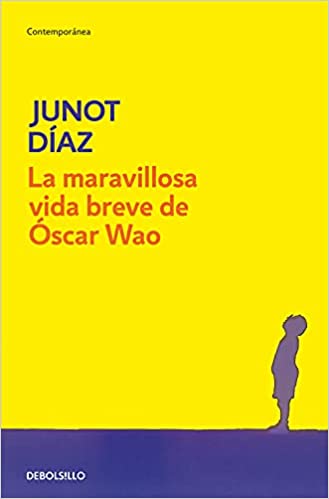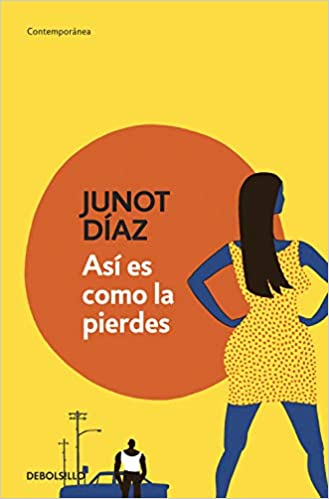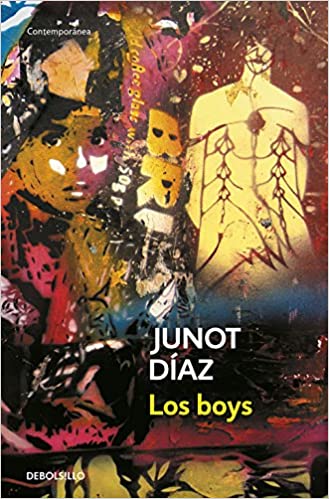The writer Junot Diaz he reconciles the essay and the short narrative with brilliant novelistic forays that end up permeating a bibliography of delicacies, humor and also depth. As far as fiction is concerned, Díaz has that gift of versatility that extends to characters and settings, as mutable as life itself in its most urban circumstances.
With the essence of the sociological as a horizon, the realism As a setting and interest in the chronicle, Junot Díaz takes us on a walk through the big city. We enjoy the landscape and the best company, winning over humor to also show us that other, less friendly side. The question is the synthesis that makes their stories rabidly human. There where sadness, loneliness and regrets are overcome by assuming from the beginning that moments of happiness are just strokes of luck, friends and laughter.
Top 3 recommended books by Junot Díaz
The wonderful short life of Oscar Wao
Sometimes the misfortune of mere social class transforms the most capable and depresses the highest dreamer imaginable. From the hopes most eagerly pursued to the frustrations that fall like flagstones ...
Life has never been easy for Oscar Wao, a sweet, obese and disastrous Dominican who lives with his mother and dysfunctional sister in a New Jersey ghetto. Oscar dreams of becoming a Dominican JRR Tolkien and, above all, dreams of finding the love of his life. But Oscar may never reach his goals due to a strange curse that has been in his family for generations, sending the Wao to prison, predisposing them to tragic accidents and, above all, heartbreak.
«At night, when I was lying in bed thinking about the girl I was in love with, a strawberry whose family was from Cancun, I had a vision of a poor nerd Fuckin 'black from the ghetto named Oscar Wao, the guy from nerd of the ghetto that I would have been if the girls hadn't 'discovered' me in my first year of high school. Oscar was not going to be the sexy Caribbean the tourism industry lives and dies for. I realized that I could write about this boy nerd who lives obsessed with history and girls, who is only good for fantasy and science fiction and who, nevertheless (tragically, comically), belongs to a community and a culture that is not properly crazy about nerds color or their interests.»
This is how you lose it
A hilarious and sweeping, provocative and tender love story book by 2008 Pulitzer Prize Winner and National Book Critics Circle Award winner The wonderful short life of Oscar Wao. Alma is of Dominican origin, dreams of living on the Lower East Side and has a great ass that seems to exist in a fourth dimension, beyond her jeans. Magda is a true native of New Jersey: petite, with big green eyes and black curls where your hand can disappear. Nilda is a Dominican from New Jersey with super long hair, like Pentecostal girls, and an incredible bust. I'm talking about world-class.
This is how you lose her, it is a book about women who take away the meaning, and about love and ardor. And about betrayal, because sometimes we betray what we love most. It is also a book about the ordeal we went through afterwards - the begging, the tears, the feeling of going through a minefield - to try to recover what we lost. What we thought we didn't want, that we didn't care about.
These stories teach us the fixed laws of love: that the hopelessness of parents is suffered by their children, that what we do to our former lovers they will inevitably do to us, and that "loving our neighbor as ourselves »Does not work under the influence of Eros. But above all, these stories remind us that ardor always triumphs over experience, and that love, when it really comes, takes more than one life to fade.
The boys
In debut operas there is usually a strange paradox that ends up balancing everything, wit or virtue with the trade or dedication. Junot Díaz also went through this process of lights and shadows, of brilliance and of ideas buried by the same way of being finally expressed in black on white. A great first book that makes a sociological chronicle from the flash of the most captivating images.
Junot Díaz made his entrance onto the literary scene with this collection of ten stories that move from the neighborhoods of the Dominican Republic to the suburbs of New Jersey. Díaz, who according to Newsweek combines "the objective gaze of a journalist with the verb of a poet," evokes a world from which fathers have disappeared, in which mothers fight with determination for their children, and in which the youngest they inherit the cruelty and clever humor of lives determined by poverty and uncertainty. Rarely does an author publish a first book preceded by unanimous critical acclaim.



